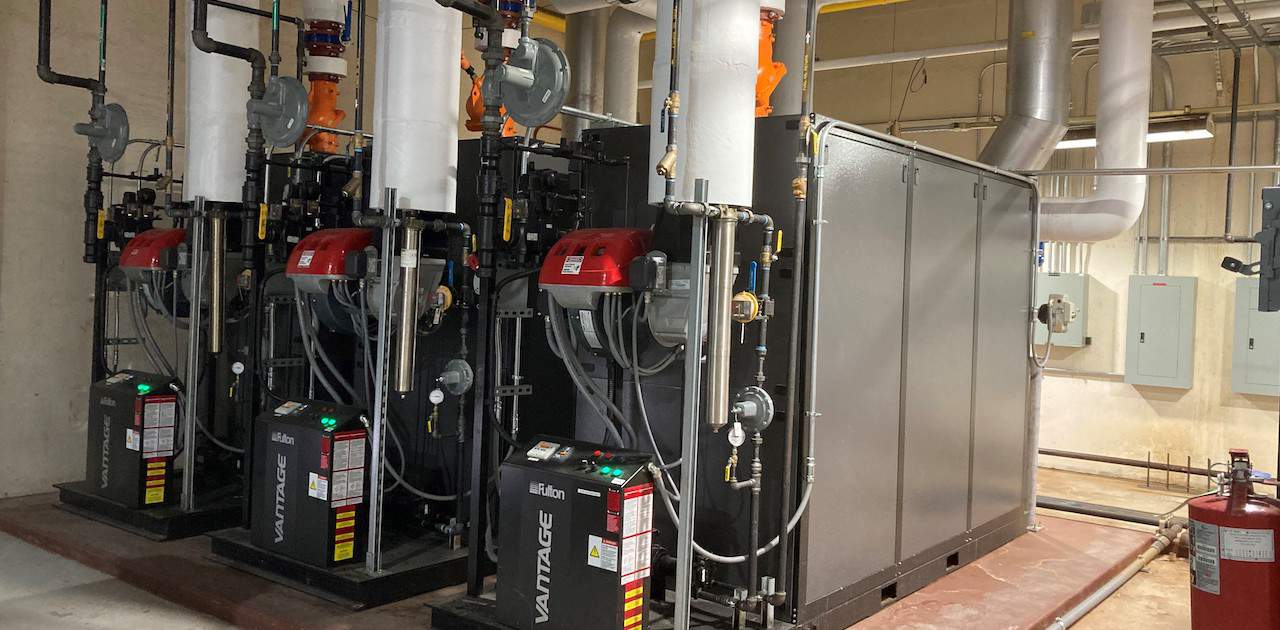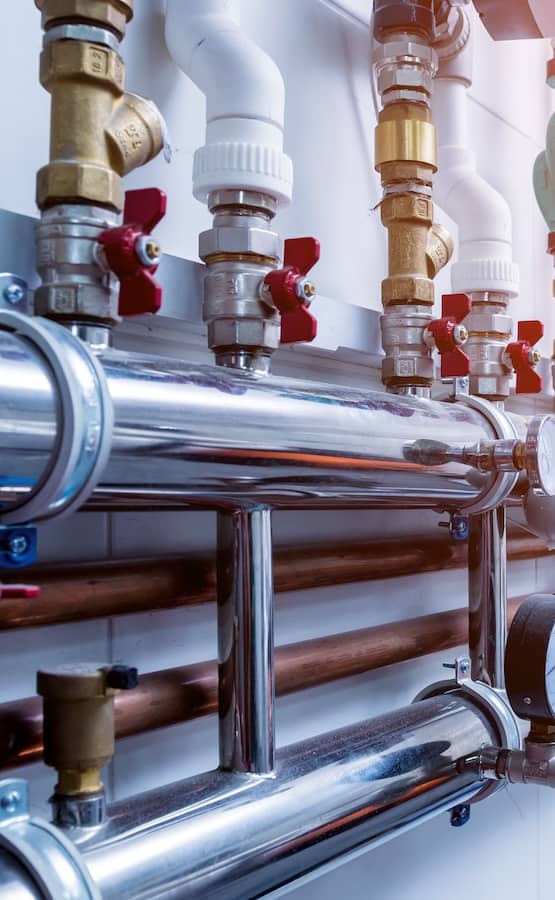Steam systems are used in thousands of buildings around Indiana
Steam systems were once the best options for buildings erected around the turn of the 20th century up to about 1930. These steam systems are still in service, using natural gas to heat large tanks of water that gets pumped into radiators and outlets throughout a building.

Replacement and enhancement options exist for old steam systems
Older steam boiler systems operate at high pressures, high temperatures, and subsequently, higher resource usage. One Indiana healthcare facility received new low-pressure systems during a recent boiler replacement project. These low-pressure systems were designed to add redundancy, improve efficiency, and eliminate the need to heat 100% of a single boiler tank when you may only need 25% of its heating capacity. The result was significantly lower natural gas costs and peace of mind for a vital healthcare provider in the region.

Benefits of steam and alternative uses
Anyone who has lived with steam systems can attest, “Steam delivers the heat!” Many people find steam a comfortable, reliable form of heating. But it often comes at the risk of consuming large amounts of gas and water.
Steam systems are often low-toxicity and can still be a good solution for some types of buildings depending on climate and usage needs. Because steam uses latent heat, it holds that heat well when transported across long distances.
Steam also holds a significant amount of energy. This energy can sometimes be converted to mechanical uses, like turning turbines in industrial applications or converting steam into hot water for santizing medical or lab equipment. As part of any steam system audit, our engineers are looking for ways to provide, more efficient steam delivery, reduce resource usage, and find ways to make the most use of available steam energy.
Get your steam system questions answered by an MEP engineer
Whether you’re repairing or replacing a steam system, looking for options to supplement or increase capacity, or have other questions about the safety or age of your system, we’re ready to help.
Request more information
An engineer is a phone call or email away.
